Life
Sign up for our newsletter
We summarize the week's scientific breakthroughs every Thursday.
-
 Neuroscience
NeuroscienceMath-anxious brains tackle simple problems differently
An fMRI study found more variable brain activity in people who get nervous about math problems.
-
 Health & Medicine
Health & MedicineDengue fever spreads in a neighborly way
Individual strains of dengue spread locally, and new infections cluster near the home of the first person affected.
-
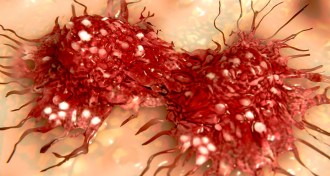 Health & Medicine
Health & MedicineRandom mutations play large role in cancer, study finds
Mistakes made while copying DNA account for more mutations in cancer cells than environment or inheritance do.
-
 Genetics
GeneticsIn 1967, LSD was briefly labeled a breaker of chromosomes
Claims that the hallucinogenic drug damaged DNA were quickly rejected. But questions remain about how LSD works.
By Bruce Bower -
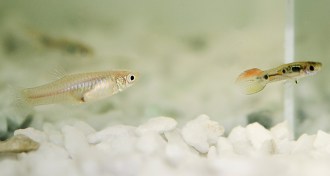 Animals
AnimalsFemale guppies with bigger brains pick more attractive guys
A larger-brained female guppy may pick primo males, but all that mental machinery costs her in other ways.
By Susan Milius -
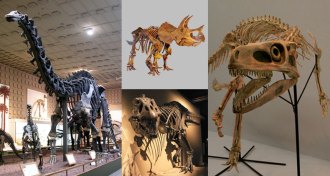 Paleontology
PaleontologyAnatomy analysis suggests new dinosaur family tree
A new analysis rewrites the dinosaur family tree, splitting up long-recognized groups.
-
 Neuroscience
NeuroscienceLab tests aren’t the answer for every science question
Acting Editor in Chief Elizabeth Quill discusses the value of observational science.
-
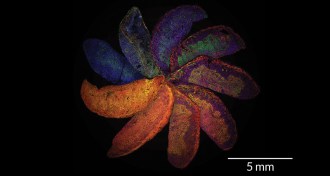 Animals
AnimalsColorful pinwheel puts a new spin on mouse pregnancy
Among the winners of the 2017 Wellcome Image Awards is a rainbow of mouse placentas that shows how a mother’s immune system affects placental development.
-
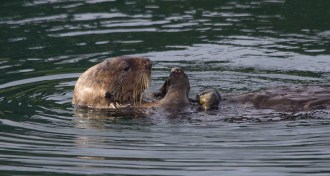 Animals
AnimalsTool use in sea otters doesn’t run in the family
A genetic study suggests that tool-use behavior isn’t hereditary in sea otters, and that only some animals need to use tools due to the type of food available in their ecosystem.
-
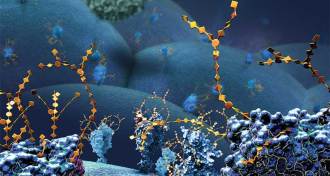 Health & Medicine
Health & MedicineCancer cells cast a sweet spell on the immune system
Tumors have surface sugars that persuade the body’s defenses to look the other way. New therapies are being devised to break the trance.
-
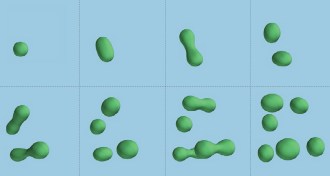 Life
LifeLife on Earth may have begun as dividing droplets
Chemical droplets could split and reproduce in the presence of an energy source, new computer simulations suggest.
-
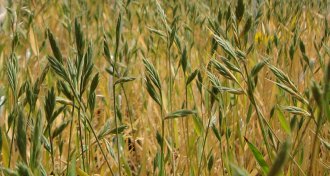 Plants
PlantsGenetic switch offers clue to why grasses are survival masters
Scientists have identified a genetic switch that helps grasses regulate their carbon dioxide intake.